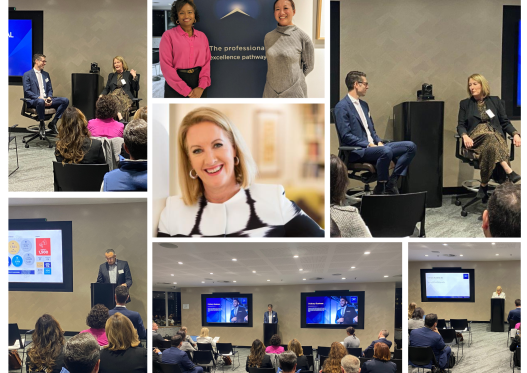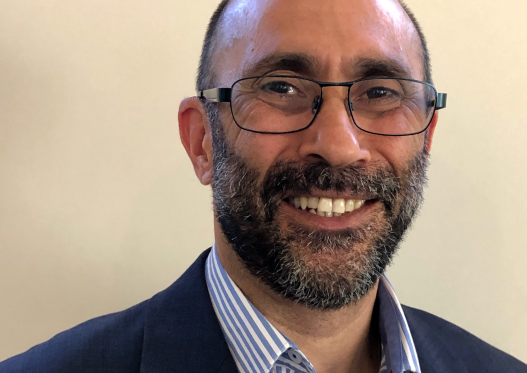It has been described by a recent graduate as a good baseline course full of rich data that shows where sustainability fits into the bigger financial services picture. Overall, what are your main take-outs?
Not that I was/am a climate change denier, however, from the scattered reading I have seen over the years, it was never spelled out and left me wondering, was it as big as it was made out to be, how solid was the science behind the claim. The great thing about this course is that the first subject covered is NOT finance, but just good old, easy-to-understand science. It makes a great case for what happened, what the net result will be for the planet and what we as the finance profession can do and more importantly what we are obligated to do. That to me was the main takeout. We need to as a planet be aware of the climate risks we face and take action
The second take out for me was the (in) consistent governance/reporting standards when it came to ESG reporting. It makes it really hard for investors to compare 'apples with apples'. There has been some great work in this space in the EU and I hope that spreads to other parts of the world. But I feel there is a lack of motivation to innovate in this area by corporations as at the moment it is another regulatory burden and cost with little reward other than a pat on the back. Investors aren't really punishing firms at this point.
What aspects have you used in your day-to-day activities?
The primary one for me has been explaining the science to colleagues, the reporting components and how the area of climate change has been integrated into corporate governance.
How is it informing you strategically?
My current role is Chief Technology Officer (CTO) at a finetch startup called Grafa. We are in the financial news, data and education business. In that respect, it has allowed me to understand and show my colleagues how we can utilise the ESG market within our platform. We strongly believe there is a gap in the market with regard to climate change, ESG reporting and data and it's something we believe we can fill.
Who do you think would benefit from taking the course? Is it applicable to everyone from new FS entrants to those in senior executive and board roles?
I think it's a must at the senior level. It gives you a great understanding of the science, the history and attempts internationally in establishing consensus on how to tackle climate change and also reporting expectations. Also, it gives you a bit of an idea of the data requirements and methods applicable.
For new entrants, I think it's a more complicated question. It really depends where you plan on specialising within your organisation. While I think it's worth doing at some point, I think there may be other courses offered by FINSIA that are possibly more relevant to a new entrant depending on where they are positioned within the organisation.
Are there things a participant could do to prepare themselves for the course? Pre-reading, for example. And how did it fit in with your other on-going learning/CPD. Are you someone who takes a course every year of someone who only studies infrequently? Clearly here you’ve fast-tracked yourself to becoming a Certified Professional Banker.
As far as course prep/pre-reading, I don't feel there is any particular requirement. A genuine interest in how the science of climate change works i.e. the science and maths behind the concept I think is important. Luckily, for me as I'm not currently under an AFSL, I'm free to choose what courses/material suit my interests and needs. As a CTO at a fintech I have to be across a broad range of subjects and this course allowed me to expand my ESG knowledge and understanding as I can see there is a keen interest in the market, both with institutions and retail investors. It's important for them to understand ESG and what the companies they are investing in are doing to meet the challenge.
I know I'm not the norm when it comes to coursework. I only have two speeds, zero and flat out. I very much enjoy learning new concepts, particularly in what I like to call "financial mechanics", that is how the financial world work and how the components interact and impact each other. My dad studied and completed his diploma in financial markets back when I was in high school and went on to become a Senior Associate at FINSIA, so a key component of my studying at FINSIA is down to him. I know I'm lucky to have him around to discuss ideas and bounce thoughts off him.
The fast-tracking of CPB for me was down to setting goals. I think Elon Musk once said, if you set a deadline you will meet it, and not a minute earlier. I completely agree. I set myself a goal of one calendar month per course. I found by doing that I was planning in my head the daily workload I needed to cover, including all the material, and try to do the mock exams at least twice. Once I had completed the first mock exam I scheduled my real exam, knowing I was only entitled to one test that I had to be ready or forfeit. It may sound crazy to some, but the result speaks for itself, I completed my PBF, and CPB in 100 days. Also, I found the material well written and easy to understand, I know Risk and Risk Management is not everyone's cup of tea, but after almost 20 years in senior government roles, with the last 3 leading the WA Government Covid-19 response, you get familiar and comfortable fast with risk and risk management frameworks.








